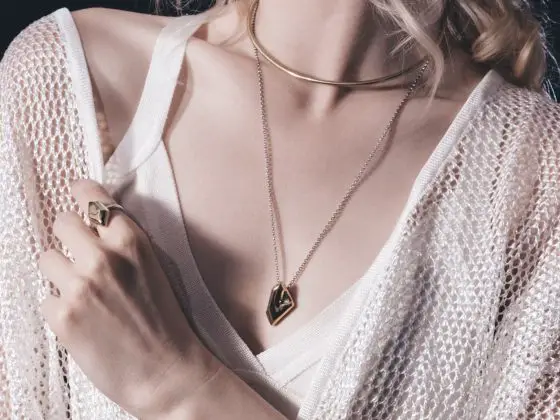 Accessories have evolved beyond mere embellishments. They now play a pivotal role in a movement focused on environmental sustainability and social justice. Ethical jewelry and sustainable handbags are at the forefront of this shift, representing a new era where style meets purpose. As consumers increasingly align their purchases with their values, the fashion industry is adapting, driven by a growing awareness of the impacts of fast fashion.
Accessories have evolved beyond mere embellishments. They now play a pivotal role in a movement focused on environmental sustainability and social justice. Ethical jewelry and sustainable handbags are at the forefront of this shift, representing a new era where style meets purpose. As consumers increasingly align their purchases with their values, the fashion industry is adapting, driven by a growing awareness of the impacts of fast fashion.
This shift fuels the demand for greater transparency and ethics throughout the supply chain, from mining to production. Fashion is now about more than just looking good—it’s about making a positive impact. Ethical jewelry and sustainable handbags are gaining traction as consumers seek items that reflect their commitment to sustainability, fair labor practices, and social responsibility, prompting brands to embrace more ethical practices and innovative materials.
The Ethical Jewelry Movement
Jewelry has long been associated with luxury, status, and beauty, but beneath the glittering surface, the traditional jewelry industry has been fraught with ethical dilemmas. Issues such as exploitative labor practices, environmental degradation from mining, and the circulation of conflict diamonds have tarnished the allure of conventional jewelry. However, as consumers become more aware of these issues, a growing movement towards ethical jewelry has emerged, driven by a desire to align style with values. Ethical jewelry brands are leading the charge in redefining the industry, offering consumers a more responsible way to indulge in beautiful adornments without compromising their principles.
The Demand for Transparency
One of the core tenets of the ethical jewelry movement is transparency. Consumers are increasingly inquiring about the origins of their jewelry, who crafted it, and the conditions under which it was produced. Ethical jewelry brands respond by providing complete transparency about their supply chains, from sourcing raw materials to production. This level of openness helps consumers make informed choices and ensures that their purchases do not contribute to harmful practices such as child labor, unsafe working conditions, or environmental destruction.
Fair Trade Practices
A cornerstone of ethical jewelry is the commitment to fair trade practices. Fairtrade certification ensures that the artisans and miners involved in jewelry production are paid a fair wage, work in safe conditions, and are empowered to improve their communities. Ethical jewelry brands work closely with small-scale mining operations, cooperatives, and artisan groups to ensure that the people behind the jewelry are treated with dignity and respect. Fair trade jewelry supports economic development in marginalized communities, providing stable income and improving the quality of life for workers and their families.
This emphasis on social equity is central to the ethical jewelry movement. It allows consumers to enjoy beautiful pieces while ensuring their purchases contribute positively.
Sustainable Materials
A commitment to using sustainable materials also characterizes the ethical jewelry movement. Traditional jewelry production often relies on practices that have devastating environmental consequences, such as gold mining, which is known for its heavy use of toxic chemicals like mercury and cyanide and the destruction of ecosystems. Ethical jewelers are avoiding these harmful practices in favor of more sustainable alternatives.
Recycled metals like gold and silver are gaining popularity because they enable jewelers to craft beautiful pieces while minimizing the environmental impact of mining. Additionally, ethical jewelers are sourcing gemstones from conflict-free zones. They are increasingly opting for lab-grown diamonds, which provide the same sparkle and durability as natural diamonds without the environmental or social costs.
In addition to recycled metals and conflict-free gemstones, ethical jewelers are experimenting with innovative materials, such as reclaimed wood, upcycled materials, and even ethically sourced pearls. These sustainable materials allow consumers to wear stunning, environmentally friendly, and socially responsible pieces. Using sustainable materials is better for the planet as it reduces waste, conserves natural resources, and supports a more circular economy in the fashion industry.
Minimalist and Timeless Designs
One of the hallmarks of ethical jewelry is its emphasis on minimalist and timeless designs. In contrast to fast fashion, which encourages a cycle of overconsumption and disposable trends, ethical jewelry is designed to be cherished for years, if not generations. These pieces often feature clean lines, simple silhouettes, and high-quality craftsmanship that ensure they will remain stylish and durable for the long term. The focus on timelessness is a deliberate rejection of the wastefulness of fast fashion, encouraging consumers to invest in fewer, higher-quality pieces that have lasting value. By choosing ethical jewelry with timeless designs, consumers are reducing their environmental footprint and embracing a more mindful approach to fashion that values longevity over trends.
The Sustainable Handbag Revolution
Like jewelry, handbags have traditionally been seen as a status symbol, often made from luxurious materials like leather and suede. However, the production of leather handbags has long been associated with environmental and ethical concerns, including the pollution caused by the tanning process, the use of harmful chemicals, and the exploitation of labor. In response to these issues, a growing number of brands are turning to sustainable alternatives, offering handbags that are both eco-friendly and ethically produced. The sustainable handbag revolution represents a shift from the disposable, trend-driven fashion cycle towards a more responsible and conscious approach to accessories.
Innovative and Eco-Friendly Materials
One of the most exciting developments in sustainable handbags is using innovative materials that offer a cruelty-free and eco-friendly alternative to traditional leather. Plant-based leathers made from pineapple leaves (Piñatex), cork, and mushroom mycelium are gaining popularity for their durability, sustainability, and unique textures. These materials reduce the environmental impact of handbag production and provide consumers with distinctive, stylish alternatives to conventional leather. Sustainable handbag brands and plant-based leathers incorporate recycled materials like plastic bottles and ocean plastics to craft functional and eco-friendly bags.
Sustainable handbag brands also prioritize using organic, biodegradable, and low-impact materials, such as organic cotton and hemp, which are grown without harmful pesticides and require less water and energy to produce than traditional textiles. By choosing handbags made from these sustainable materials, consumers can reduce their carbon footprint, support sustainable agriculture, and help combat the growing problem of plastic waste in the fashion industry.
Timeless and Versatile Designs
Like ethical jewelry, sustainable handbags are often designed with timelessness and versatility. Rather than chasing fleeting trends, sustainable handbag designers focus on creating classic, functional, and durable pieces. These handbags are crafted to endure over time, featuring top-notch materials and skilled crafts that guarantee durability for many years. This emphasis on longevity reduces waste and encourages consumers to invest in fewer, better-quality pieces that can be used in various settings.
Many sustainable handbag brands also embrace modular and convertible designs that offer versatility and adaptability. For instance, one handbag might be designed to function as a crossbody, shoulder bag, or clutch, offering several styling choices in a single accessory. This focus on multifunctionality further enhances the sustainability of these bags, as they can be used for different occasions and purposes, reducing the need for multiple bags.
Ethical Production Practices
Sustainable handbag brands are focused on using eco-friendly materials and ensuring that their products are made under fair labor conditions. Ethical production is a vital aspect of the sustainable handbag movement. It is due to many brands partnering with artisan cooperatives, fair trade factories, and small workshops. These practices ensure that workers receive fair compensation and the opportunity to work in safe conditions. By endorsing these ethical production practices, consumers help foster a more equitable fashion industry where those who create our products are treated with dignity and respect.
The Future of Fashion: Merging Style, Ethics, and Sustainability
The growing popularity of ethical jewelry and sustainable handbags marks a significant change in the fashion industry towards more responsible and conscious practices. As their buyers became more mindful of their purchases’ social and environmental effects, they increasingly opted for brands focusing on ethics and sustainability. This shift is changing how fashion is produced and redefining what it means to be fashionable in the modern world.
The future of fashion lies in the merging of style, ethics, and sustainability, where consumers no longer have to choose between looking good and doing good. As more brands embrace sustainable practices and ethical principles, the fashion industry is moving towards a more inclusive, transparent, and environmentally conscious future. This evolution is driven by a new generation of consumers demanding more from the brands they support—transparency, accountability, and responsibility.
We expect continued innovation in the materials and production methods used to create ethical jewelry and sustainable handbags. Technological advancements create new opportunities to produce luxurious, high-quality accessories without relying on harmful practices or materials. At the same time, the growing demand for transparency and sustainability encourages brands to be more open about their supply chains, fostering greater trust and accountability between consumers and producers.
Conclusion
The rise of ethical jewelry and sustainable handbags represents a shift towards fashion that values social and environmental responsibility without compromising style or luxury. These accessories embody a movement toward a more ethical and sustainable future, allowing consumers to express their values through their choices.
As the fashion industry evolves, ethical jewelry and sustainable handbags will increasingly shape its direction, offering timeless designs and innovative materials while supporting fair labor practices. This growing focus on ethics and sustainability paves the way for a more responsible and impactful fashion industry.













